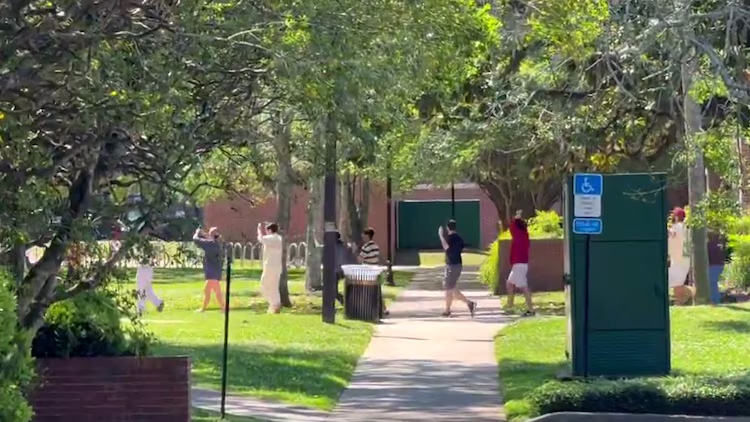Medicaid enrollment, costs growing as unemployment surges in North Carolina
RALEIGH, N.C. (WTVD) -- Even before COVID-19, the struggle to make health insurance more accessible and affordable was a pre-existing condition.
The novel coronavirus, however, is exacerbating the issues ailing the industry as more Americans lose their jobs and lose their benefits, including 900,000 in North Carolina.
"I think the reality of all of this is that with a loss of jobs, there's an awful lot of people who will be under- or un-insured as we go through this process," Dave Richard, North Carolina's Deputy Secretary of Medicaid told ABC11. "As we see more and more people coming in Medicaid, then obviously the cost goes up, and in an economic downturn that we have, the ability to pay for that is going to be really important."
Before the pandemic, as many as 2.1 million North Carolinians enrolled in Medicaid, the state-sponsored health care provided to low-income earners. Richard said at least 75,000 have been added since March.
"As we see more and more people coming in Medicaid, then obviously the cost goes up, and in an economic downturn that we have, the ability to pay for that is going to be really important," he said.
Still, with nearly 1 million people out of work, the individuals going on Medicaid is only a fraction of those needing health insurance.
Other options include COBRA, the continuation of benefits but at full price; switching to a spouse's plan; or applying under special circumstances for a policy through HealthCare.gov, the exchange created under the Affordable Care Act (sometimes referred to as Obamacare).
Many folks buying insurance on the exchange can also qualify for subsidies to help offset costs, but a rising number fall into what's known as the "Coverage Gap," when an individual makes too much money to qualify for Medicaid, but not enough to be eligible for ACA subsidies. Before COVID-19, officials estimated 500,000 North Carolinians were in this gap, but now projections show an additional 300,000.
"The worry is twofold from our standpoint," Richard explained to ABC11. "One is people will have no coverage and just because they have no coverage their health needs don't go away, so they'll delay their health care. Or, when it finally hits, they'll show up at an emergency department which is the most expensive place you can get coverage."
And if that happens, Richard warned, hospitals must recoup that money from other paying customers.
"What you're going to have is a system that's been stretched as far as it can go for people who can provide those services, a health care system that is shifting a lot of folks to Medicaid, which pays less than commercial plans pay, and a significant number of uninsured individuals that will still need health care," he said.
Democrats, led by Gov. Roy Cooper, have long advocated the expansion of Medicaid, paid for mostly by the federal government.
"We know that an extended Medicaid can be catching people as they are being knocked down," Cal Cunningham, the Democrat candidate running for U.S. Senate, told ABC11. "If we don't take these steps, the risk is that we create a downward spiral for our families and our economy. We need emergency steps today to make sure our families have unemployment assistance, small business has opportunity to keep people on the payroll, that we provide health coverage to people in the middle of a pandemic so that things don't get worse."
Sen. Thom Tillis, R-NC, along with many other state Republicans, have long argued against expanding Medicaid and expanding the role of government in health care (Neither Tillis' office in Washington nor his campaign office responded to repeated requests for an interview).
In a video clip posted on his YouTube page, Tillis, also a fierce opponent of the Affordable Care Act, stressed the need to create more jobs to restore health benefits instead of growing entitlement programs.
"My priority is trying to get jobs back to the United States that cannot be in China," Tillis told Spectrum News. "We've seen the disruptions from personal protective equipment, for medications. We can't let that happen again. We have to have a strong position against China."
Congressman Greg Murphy, a Greenville Republican and medical doctor who served in the North Carolina General Assembly agreed.
"Before the pandemic, we had record unemployment, we had jobs and we had coverage," Rep. Murphy told ABC11. "The persistent restrictions from Governor Cooper are hurting employment. There's been no massive surge in cases, so the restrictions smack in the face of science."
Murphy, a urologist, has become increasingly vocal in his criticism of what he calls the governor's "choosing political science over medical science.
"We can go back to business and do it safely," he added.










